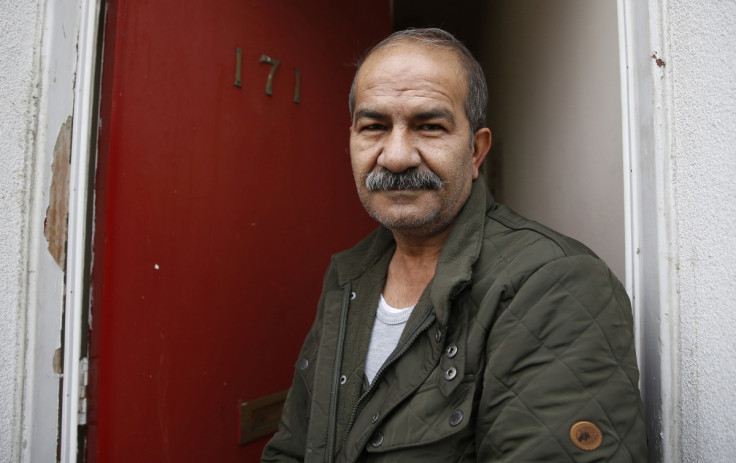Holocaust Memorial Day 2016: That dark time in history should be a warning for today's treatment of refugees

It shouldn't need saying that the current treatment of refugees in the UK and other EU countries is not equivalent to the Holocaust. The systematic, industrialised slaughter of more than six million Jewish people and members of other minority groups has few historical parallels.
It's a horror that's difficult to even contemplate and a major stain on the history of the world. On Holocaust Memorial Day, we have a duty to reflect on this on this uniquely evil event.
On one level, then, commentators have a point when they object to recent comparisons between Nazi Germany, where all Jewish citizens were forced to wear Star of David badges and mark the front door of their homes, and asylum seekers in the UK being required to wear red wristbands and being housed in properties identifiable based on their uniformly red doors.

The context is hugely different. There is no "Final Solution" being planned in 21st-century Britain. And it's true that some arguments about apparent similarities have been, to put it diplomatically, lacking in nuance.
However, this is no reason to reject any possible comparison between the two situations. Discussing the seizure of refugees' possessions in Denmark, Germany and Switzerland in the context of Nazi confiscation of Jewish citizens' wealth, for example, isn't meant to imply an equivalence with genocide – it's an attempt to wake people up to the fact that current events, though less severe, are still abhorrent and unjust. It's also an important warning that things could get worse now we've started on this dark path, even if we hope they could never get that bad again.
The dehumanisation of minority groups encourages us to condone things we would condemn if people we know were affected. The parallel isn't just in the specific actions of authorities but also the widespread public tolerance of unfair treatment.
The same dehumanising language that accompanied virulent persecution of Jewish people in Nazi Germany is present in our own media. The only difference is the group being targeted. Newspapers describe refugees as a "disgusting" eyesore for British tourists. Human beings are discussed as if they are little more than vermin.
This treatment goes beyond words: for several months, it was actually official government policy to knowingly let people drown who were fleeing persecution and war.
"The parallel isn't just in the specific actions of authorities, but also the widespread public tolerance of unfair treatment"
Even that wasn't good enough for Katie Hopkins, with her "migrants are like cockroaches" comment, while she suggested we should use British gunships to shoot holes in their boats. In 21st-century Britain, advocating potential mass murder of innocents can apparently be described as "telling it like it is".
The claim that making this point somehow dents our ability to recognise the horror of the Holocaust seems bizarre. Nazi Germany is referenced precisely because what happened there is universally accepted as an atrocity.
The horror is exactly the point. Looking back, almost everyone can see that persecution is indefensible in its most extreme form. Drawing a comparison with contemporary treatment of refugees is an attempt to make us recognise ongoing injustice we might otherwise ignore.
Red doors and wristbands might not serve the same purpose as Star of David badges in Nazi Germany but they have both symbolic and practical significance.
Comparing the wristbands required in some communal refugee accommodation with those used at music festivals and on hospital wards misses the point entirely. The issue is not the physical object. It's that an already stigmatised group are being physically marked as "other".
"The same dehumanising language that accompanied virulent persecution of Jewish people in Nazi Germany is present in our own media. The only difference is the group being targeted"
The red doors of refugees' homes in Middlesbrough have been smeared with excrement and racist graffiti. Racist attacks that were enabled by Jomast, a subcontractor of management company G4S, when it signalled which properties were occupied by people who fled to Britain in search of safety, even if both firms denied the claim that the colour was deliberately used.
This can't simply be dismissed as an unfortunate oversight. Government contracts should not be granted to companies that won't make an active effort to promote inclusion. Foresight and sensitivity are minimum requirements. Likewise, compulsory wristbands that make refugees feel like they're being treated like cattle are unacceptable because of the climate of stigma and hostility that already exists.
Often, objections to Nazi comparisons seem motivated by a desire to downplay the harm of European treatment of refugees. But that impulse is exactly the reason we should keep making them. As a society, we need to recognise that treating certain groups as lesser, with fewer rights and less entitlement to dignity and respect, is unjustifiable in any circumstances.
If we keep turning a blind eye to the mistreatment of refugees, who can actually say how low our society could sink? Maybe referencing one of the darkest periods in global history will be what it takes to get the message across.
© Copyright IBTimes 2024. All rights reserved.






